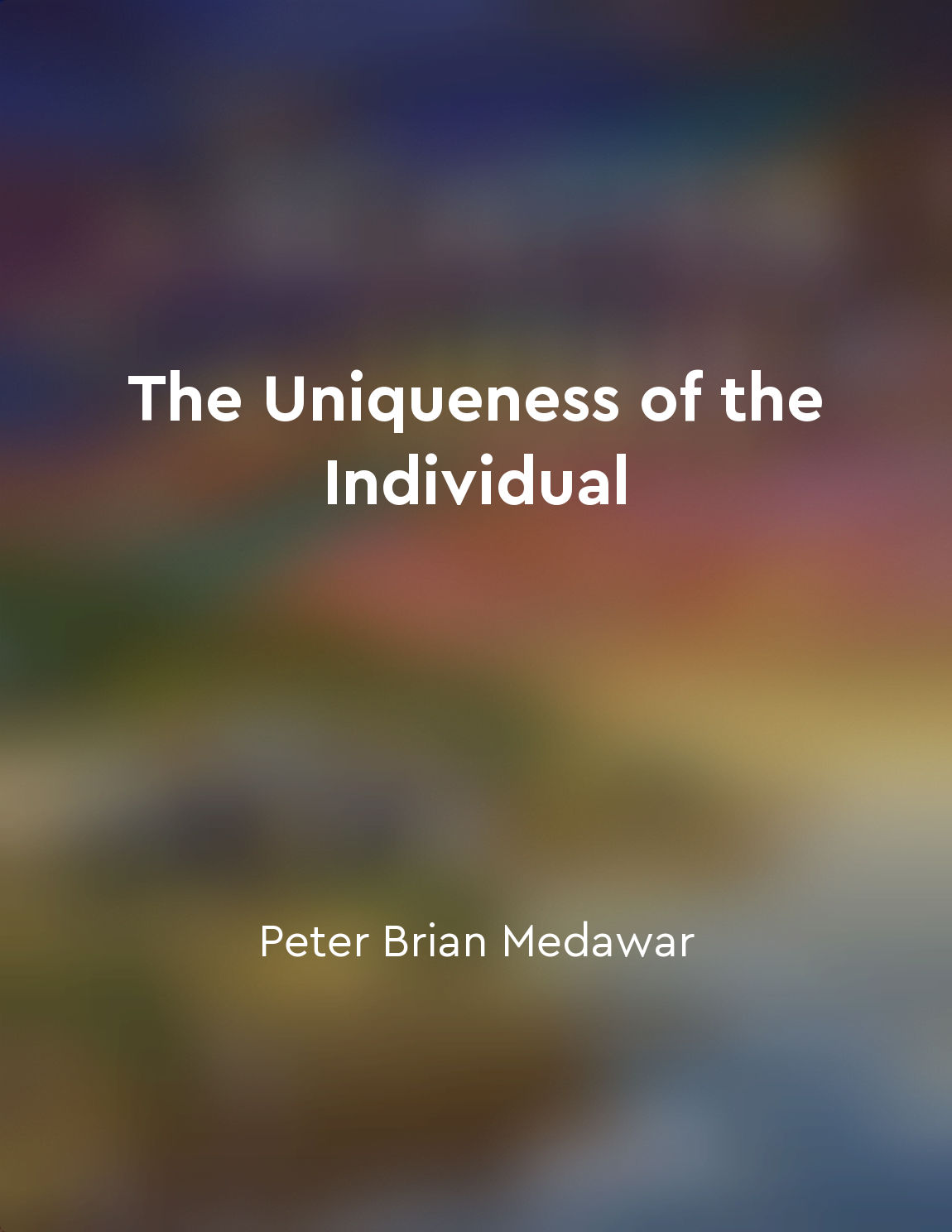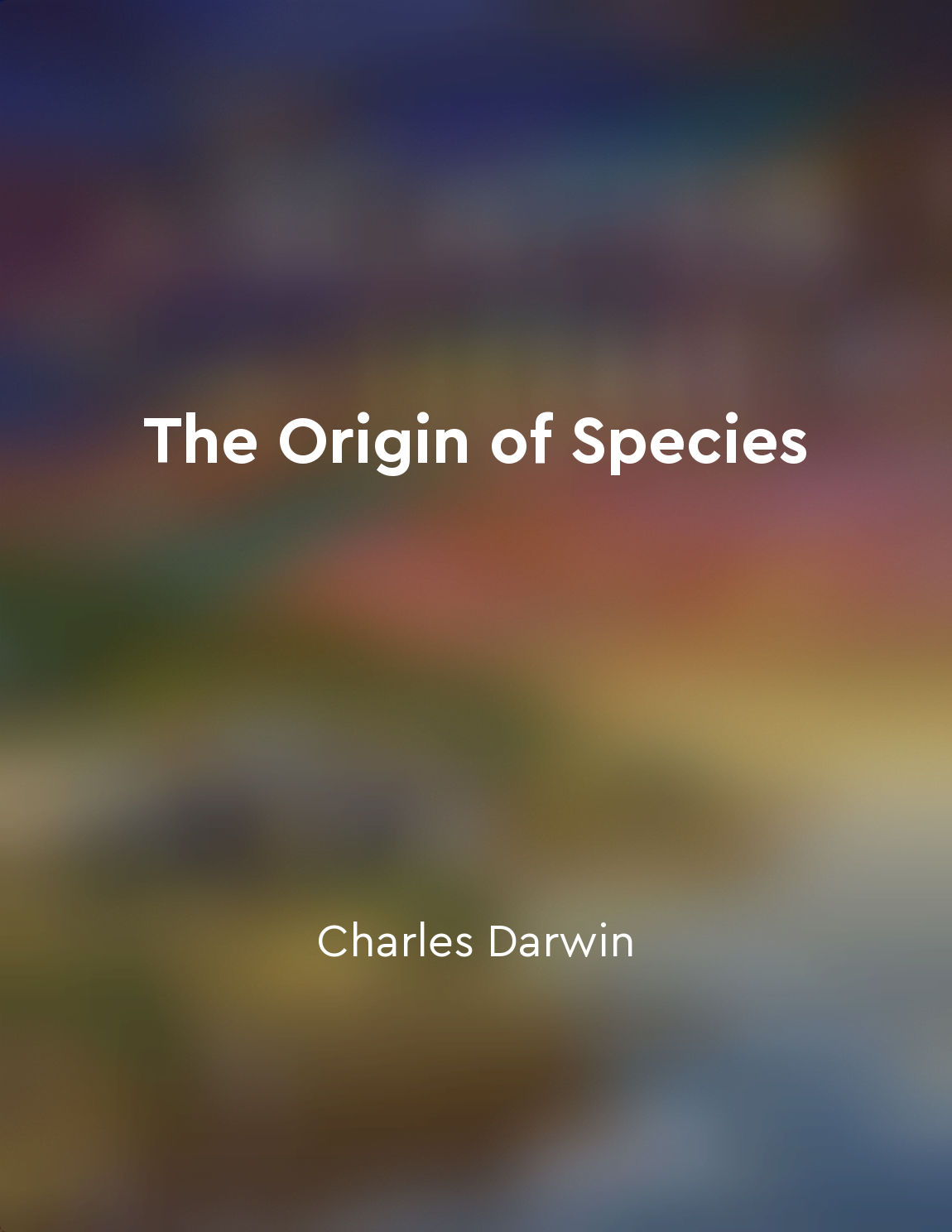Gradual changes occur over generations from "summary" of The Origin of Species by Charles Darwin
The process of evolution unfolds slowly over extended periods of time, with modifications accumulating gradually from one generation to the next. These alterations are often subtle and may not be immediately noticeable within a single lifetime, but over many generations, they can lead to significant differences in the characteristics of a species. Through the mechanism of natural selection, advantageous traits are favored and passed on to offspring, while less advantageous traits are gradually eliminated from the population. This gradual process of change allows species to adapt to their environment over time, increasing their chances of survival and reproduction in a changing world. In the grand scheme of evolution, small changes in the genetic makeup of a population can have profound effects on the overall appearance and behavior of a species. These changes are not predetermined or directed towards a specific goal, but rather result from the interplay of genetic variation, environmental factors, and selective pressures acting on a population over time. While the pace of evolution may seem slow and imperceptible in the short term, the cumulative effect of gradual changes over generations is what ultimately drives the diversity of life on Earth. Each species is a product of this ongoing process of modification and adaptation, shaped by the forces of nature and the passage of time. By understanding the concept of gradual changes occurring over generations, we gain insight into the intricate workings of the natural world and the remarkable diversity of life forms that have evolved through this slow and steady process. It is through this lens that we can appreciate the beauty and complexity of the living world around us, shaped by millions of years of evolution.Similar Posts
Empowering farmers with knowledge and resources is vital for ensuring food security
To ensure food security, it is essential to empower farmers with the necessary knowledge and resources. This empowerment enable...
Gene regulation is crucial for normal development
Gene regulation is crucial for normal development because it controls the timing and location of gene expression. During develo...

Personal autonomy is a fundamental right
The idea that personal autonomy is a fundamental right is deeply rooted in the concept of individual uniqueness. As human being...
Pythagoras introduced mathematical relationships in nature
Pythagoras was a man of many talents, but above all, he was a mathematician. His insights into the relationships between number...

The rich tapestry of individuality shapes human culture
The intricate and diverse fabric of individuality weaves together to form the vibrant tapestry of human culture. Each thread re...

The evolution of everything is inevitable
In the grand scheme of things, the concept of evolution applies not only to biological organisms but to every aspect of human c...

Individual differences can be both subtle and profound
Individual differences among organisms are a fundamental aspect of biology, reflecting the diversity and complexity of life its...
Microevolution is observable within a single lifetime
In Darwin's Dangerous Idea, Dennett explores the concept of microevolution, emphasizing the observable changes that can occur w...
Mendel studied heredity through pea plants
Gregor Mendel, the Austrian monk, is best known for his work on heredity. His experiments with pea plants in the mid-nineteenth...
Developmental constraints influence evolutionary outcomes
Developmental constraints refer to limitations imposed by the structure, function, or development of an organism that can influ...

